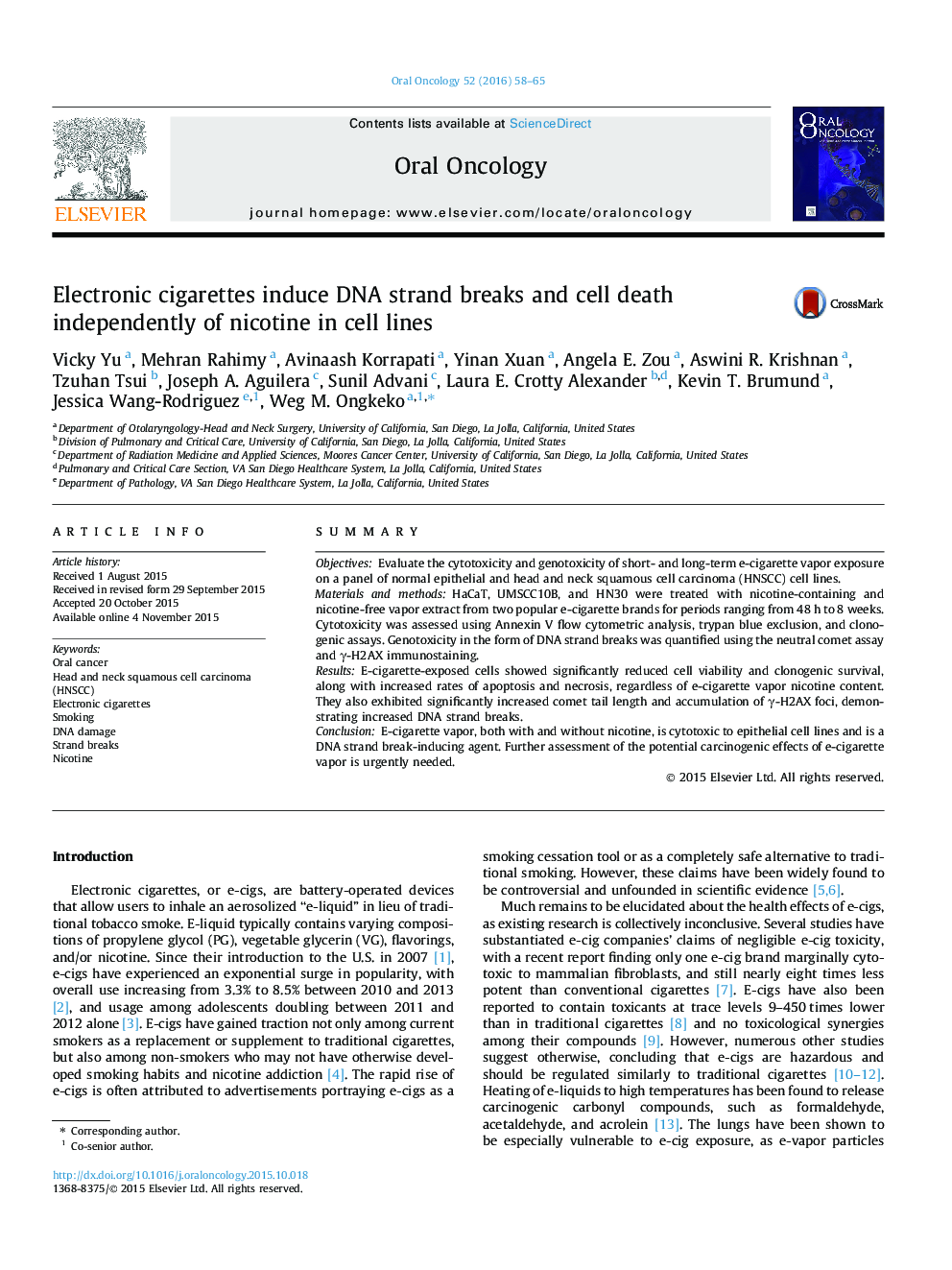| کد مقاله | کد نشریه | سال انتشار | مقاله انگلیسی | نسخه تمام متن |
|---|---|---|---|---|
| 3163821 | 1586258 | 2016 | 8 صفحه PDF | دانلود رایگان |

• Normal and HNSCC cell lines were cultured in e-cigarette vapor pulled through media.
• Cell cultures exposed to e-cigarette vapor show increased DNA double strand breaks.
• E-cigarette vapor induces increased cell death as compared to control.
• E-cigarette vapor decreases clonogenic survival as compared to control.
SummaryObjectivesEvaluate the cytotoxicity and genotoxicity of short- and long-term e-cigarette vapor exposure on a panel of normal epithelial and head and neck squamous cell carcinoma (HNSCC) cell lines.Materials and methodsHaCaT, UMSCC10B, and HN30 were treated with nicotine-containing and nicotine-free vapor extract from two popular e-cigarette brands for periods ranging from 48 h to 8 weeks. Cytotoxicity was assessed using Annexin V flow cytometric analysis, trypan blue exclusion, and clonogenic assays. Genotoxicity in the form of DNA strand breaks was quantified using the neutral comet assay and γ-H2AX immunostaining.ResultsE-cigarette-exposed cells showed significantly reduced cell viability and clonogenic survival, along with increased rates of apoptosis and necrosis, regardless of e-cigarette vapor nicotine content. They also exhibited significantly increased comet tail length and accumulation of γ-H2AX foci, demonstrating increased DNA strand breaks.ConclusionE-cigarette vapor, both with and without nicotine, is cytotoxic to epithelial cell lines and is a DNA strand break-inducing agent. Further assessment of the potential carcinogenic effects of e-cigarette vapor is urgently needed.
Journal: Oral Oncology - Volume 52, January 2016, Pages 58–65